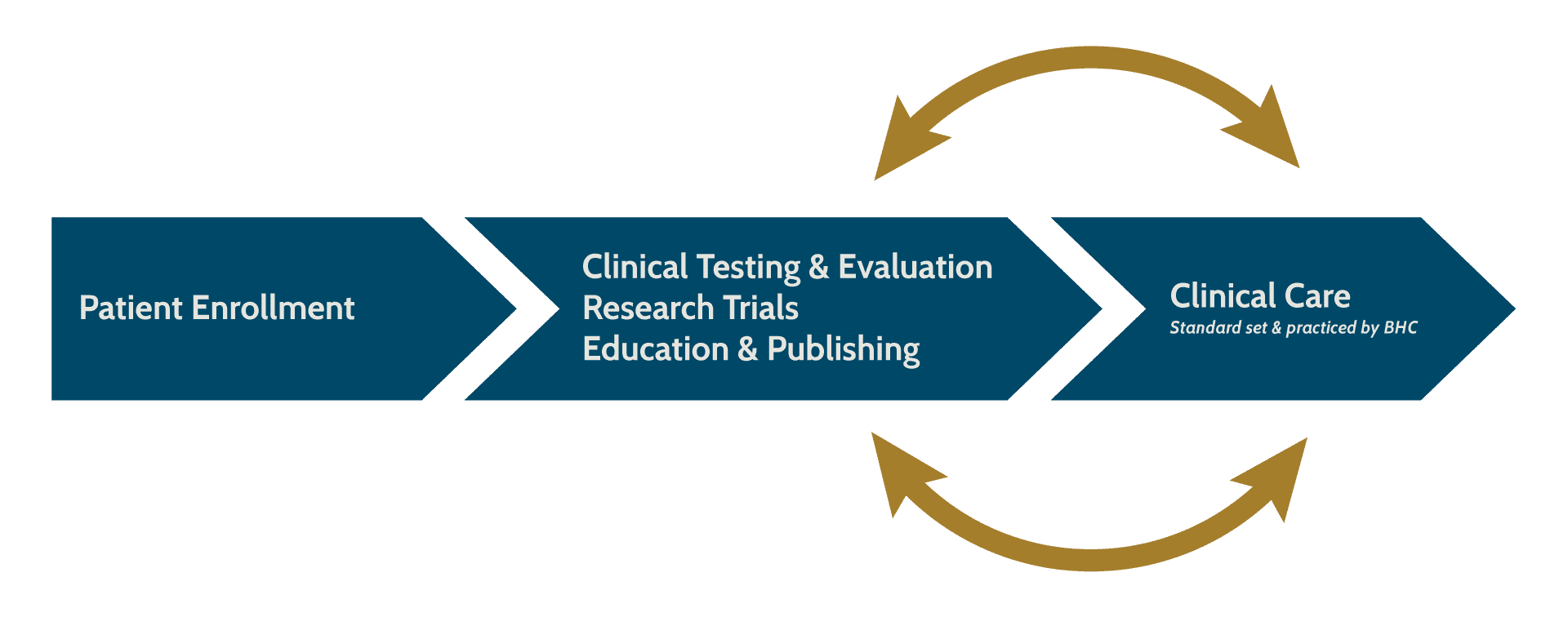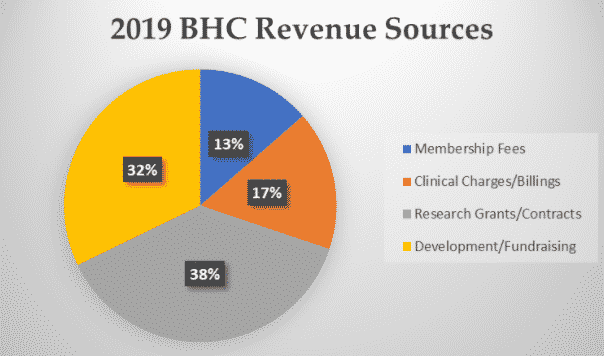The Bateman Horne Center (BHC) is a non-profit, interdisciplinary Center of Excellence where clinical care, research, and education meet to collectively advance the diagnosis and treatment of myalgic encephalomyelitis/chronic fatigue syndrome (ME/CFS), fibromyalgia (FM), and other related comorbidities.
BHC fosters clinical success for the care and treatment of ME/CFS and FM using clinical intelligence derived from data analytics of patient records in the quest for better medical care for current and future patients. BHC engages collaborative partnerships to inform healthcare consumers and providers to deliver enhanced quality and improved outcomes through innovation, applied technology, and efficient distribution of knowledge.
BHC – A Unique Value Proposition
The Bateman Horne Center (BHC) is a non-profit 501(c)3 Center of Excellence improving lives impacted by myalgic encephalomyelitis/chronic fatigue syndrome (ME/CFS), fibromyalgia (FM), and related co-morbidities.
The BHC Value Proposition addresses the real-world of ME/CFS and FM limitations including narrow options for patients to access quality clinical care, underfunding of research initiatives, and need for informed educational resources for patients and healthcare providers.
BHC Healthcare Model
BHC delivers on the value proposition through a synergistic relationship of clinical care, research, and education:
- Clinical Care – BHC maintains an expert consultation and clinical care center providing patients with a differential diagnosis and individualized health management plan. The clinic also establishes well-defined participants for targeted clinical trials for ME/CFS, FM, and related comorbid conditions.
- Research – BHC conducts research driving innovative, emerging research pathways to define the core signs, symptoms, and decrements in specific functioning. This is the starting place for drug development, clinical trials, and treatment for ME/CFS and FM. BHC is unique in its focus on creating objective measures to diagnose ME/CFS and FM. BHC continues to drive biomarker discovery by sharing biological samples and clinical information with the brightest scientists from around the world.
- Education – BHC creates, aggregates, and delivers educational resources and programming for patients and their care partners for improved self-management and to empower with knowledge. BHC also provides informed and comprehensive educational resources and training for healthcare providers to help improve access to quality care.
BHC Model Process
- Enrollment – Prospective patients apply for enrollment at BHC for a comprehensive evaluation, diagnosis, and illness management strategy.
- Engagement – Patient and research participation may involve:
- Clinical testing and treatment strategies,
- Research directives, clinical trials, and innovative discovery, and
- Educational outreach and publishing to impact the BHC Community and help mainstream this illness.
- Outcomes – Are aggregated to deliver and inform future:
- Clinical care and health maintenance model, and
- Testing, treatment, research, and education.

BHC Revenue Sources
BHC has a specific non-profit revenue model to address the various components of the healthcare model and to ensure future viability and delivery of services. BHC generates revenues from the following sources:
- Annual Membership Fees – applies to all enrolled patients, (not research-only participants) and covers the value-add of BHC services and participation above and beyond what health insurance contracts are designed to cover. First year enrollees generally have a larger first year fee.
- Clinical Fees – applies to in-person and telehealth visits with a BHC provider in one or more of the following payment options:
- Insurance Fee for Service – to the extent allowed by the patient’s insurance carrier with associated deductibles and co-pays.
- Non-Insured Cash Pay – for those without insurance on a discounted scale.
- Non–Enrolled Patient Consults – cash only stand-alone virtual consults (rare).
- Research Fees – applies to contracts where BHC is a collaborative partner or sponsor for research including trials for pharmaceuticals, wearable devices, samples for biomarker discovery, etc.
- Development – applies to fundraising efforts from supporters including major donor and private grant requests. Priority use of development funds include:
- Educational Programming – creation and production of resources for patients and healthcare providers.
- Friends of Shauna B Horne Fund – providing financial support for clinical care of financially vulnerable individuals with ME/CFS or FM.
- Innovative Research – fosters BHC-led research projects.
- Provider Recruitment – assists in the start-up costs of recruiting new providers.

 Lucinda Bateman, MD, is a renowned clinician, researcher, and educator. Her Johns Hopkins University Medical School training instilled an approach to care that she has employed throughout her career - the patient comes first and the unknown or unexplained does not equate to a lack of proper and compassionate care. Since starting her own practice in 2000, she has served on six boards or committees, been the principal investigator for 45 studies, authored/coauthored 40 journal articles, served as adjunct instructor and adjunct assistant professor in the University of Utah Departments of Preventative Medicine, Internal Medicine, and Anesthesiology, and lectured around the world.
Lucinda Bateman, MD, is a renowned clinician, researcher, and educator. Her Johns Hopkins University Medical School training instilled an approach to care that she has employed throughout her career - the patient comes first and the unknown or unexplained does not equate to a lack of proper and compassionate care. Since starting her own practice in 2000, she has served on six boards or committees, been the principal investigator for 45 studies, authored/coauthored 40 journal articles, served as adjunct instructor and adjunct assistant professor in the University of Utah Departments of Preventative Medicine, Internal Medicine, and Anesthesiology, and lectured around the world.